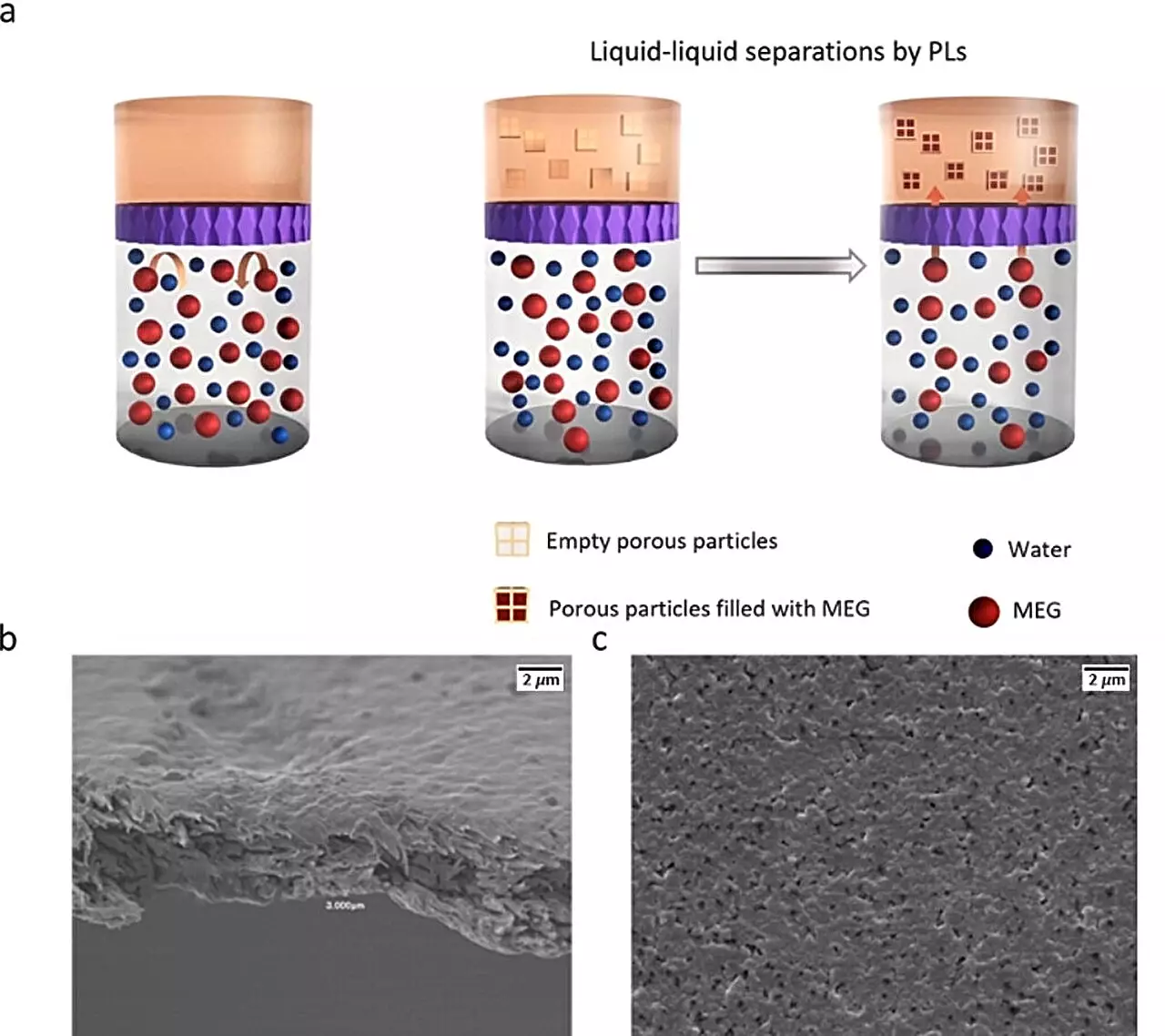In a groundbreaking advancement, researchers at the University of Birmingham and Queen’s University Belfast have embarked on a pioneering study that has leveraged the unique properties of porous liquids (PLs) to achieve liquid-liquid separation. This remarkable research opens up new avenues in ensuring environmental sustainability and enhancing public health, paving the way for innovative solutions to some of the pressing challenges faced in various industries today.
One of the paramount issues this research addresses is the environmental impact of de-icing agents extensively used in the aeronautical industry. Specifically, monoethylene glycol (MEG) is a prevalent compound used in de-icing formulations, yet its discharge, when mixed with water, results in toxic run-off that poses significant threats to aquatic ecosystems. The majority of airports have giant storage tanks filled with MEG-water mixtures, which are hazardous and costly to manage, typically awaiting disposal solutions that don’t exist.
The novel application of Type 3 porous liquids in the current research allows for the absorption of MEG from contaminated water sources, achieving a remarkable absorption capacity of up to 88% of the PL pore volume. This extraction technique not only promises a practical solution for safe MEG management but also significantly mitigates its detrimental ecological effects. The successful separation of this harmful substance from water may ultimately lead to cleaner runoff and contribute to better environmental outcomes.
The Expansion into Alcohol Reduction
The versatility of porous liquids extends beyond environmental concerns; they have also demonstrated efficacy in the beverage industry. The research team’s exploration into using these liquids for reducing alcohol content in products like wine and gin showcases their potential to cater to evolving consumer preferences for low-alcohol alternatives. While many existing low or non-alcohol beverages often compromise on flavor, PLs can potentially detoxify spirits while maintaining their aromatic and taste profiles, revolutionizing the landscape for producers.
As outlined by Assistant Professor Deborah Crawford of the University of Birmingham, the implications of this research are far-reaching. The discovery of using porous liquids for liquid-liquid extraction is transformative, not only solving the critical waste management issue associated with MEG but also creating a new paradigm in beverage manufacturing. This development resonates with a global shift towards sustainability and health consciousness, paving the way for innovations that meet the demands of today’s environmentally aware consumers.
The emergence of porous liquids as a tool for effective liquid-liquid separation marks a significant milestone in both environmental and public health sectors. As industries seek sustainable practices, the successful application of PLs heralds an era of innovation that can effectively tackle some of the most challenging problems of our time, from water pollution to consumer health preferences. With ongoing research and development, porous liquids stand poised to change the dynamics of waste management and product formulation, ultimately fostering a more sustainable future.


Leave a Reply